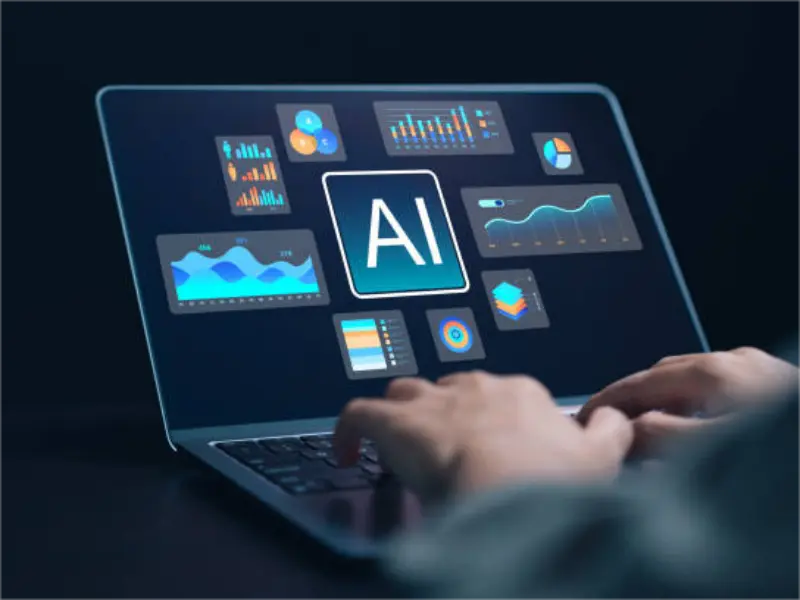- AI is transforming our world, accelerating at a pace that is becoming more integrated into our daily lives every year.
- AI technologies such as DeepMind’s personalised healthcare algorithms and Boston Dynamics’ adaptive robots are revolutionising industries.
- Tools like AI Studio are transforming the entertainment industry by helping creators develop rich, detailed narratives.
Artificial Intelligence (AI) has evolved dramatically from its origins in the mid-20th century to today’s sophisticated applications across multiple industries. Starting with foundational models such as the Perceptron, AI now powers advanced systems such as OpenAI’s GPT-4, enhancing capabilities in natural language processing and beyond.
Today, AI is an integral part of everything from healthcare, where it personalises treatment plans, to entertainment, where it helps create content. As AI continues to advance, it promises to further revolutionise industrial efficiency, consumer interaction and creative processes, shaping a future where technology increasingly supports human activity.
The origins of AI
AI’s journey began in the mid-20th century with the idea that machines could simulate human intelligence. Alan Turing’s famous question “Can machines think?” set the stage and led to the development of the first neural network by Frank Rosenblatt in 1958, called the Perceptron, which opened the door to machine learning.
Milestones in AI development
1956: The term “artificial intelligence” is coined at the Dartmouth Conference.
1997: IBM’s Deep Blue defeats world chess champion Garry Kasparov.
2016: Google’s AlphaGo defeats world Go champion Lee Sedol, demonstrating the power of deep learning.
AI development: 2020-present
The rise of AI in recent years has largely been driven by developments in generative AI – or the ability of AI to generate text, images and video in response to textual prompts. Unlike earlier systems, which were programmed to respond to a specific query, generative AI learns as it goes, from material (documents, photos and more) from across the internet.
OpenAI and GPT-3: The AI research company OpenAI built a generative pre-trained transformer (GPT), which became the architectural foundation for its early language models GPT-1 and GPT-2, which were trained on billions of inputs.
DALL-E: An OpenAI creation released in 2021, DALL-E is a text-to-image model. When users prompt DALL-E with natural language text, it responds by generating realistic, editable images. The first iteration of DALL-E used a version of OpenAI’s GPT-3 model and was trained on 12 billion parameters.
ChatGPT: In 2022, OpenAI released the AI chatbot ChatGPT, which interacts with users in a far more realistic way than previous chatbots thanks to its GPT-3 foundation, which was trained on billions of inputs to improve its natural language processing capabilities.
Generative AI grows: OpenAI released GPT-4 in 2023, which built on the power of its predecessor, but Microsoft integrated ChatGPT into its Bing search engine and Google released its GPT chatbot Bard.
Also read: Elon Musk says electricity is key constraint for AI development
Also read: Google updates Gemini AI with 1.5 Flash Model
AI advances in 2024:
Personalisation in healthcare: DeepMind’s AI algorithms are now integrated into hospital systems, offering tailored treatment plans based on patient data to improve healthcare outcomes.
Environmental monitoring: IBM’s Green Horizon project uses AI to analyse satellite imagery for environmental monitoring, helping to predict disasters and manage resources globally.
Robotics in manufacturing: Boston Dynamics unveiled a new line of adaptive robots for automotive and electronics manufacturing, significantly increasing the efficiency of production lines.
Financial Insights: Zest AI provides fintech solutions that use machine learning to improve the accuracy and fairness of financial lending by analysing borrower behaviour.
Entertainment content creation: AI Studio, a tool developed for the entertainment industry, helps creators generate detailed character backstories and plot developments, enriching the narrative creation process. Besides, Meta announced on 29 July that it is rolling out its AI Studio to all creators in the US to enable them to create personalised AI-powered chatbots.

